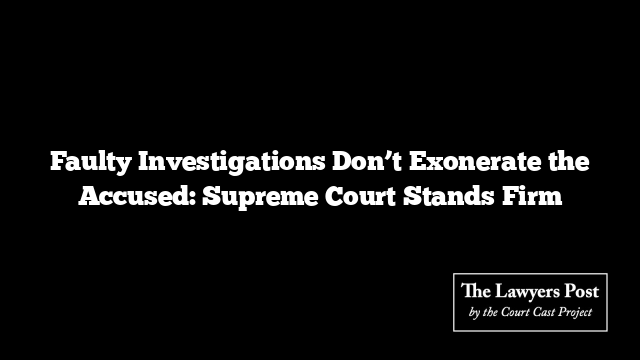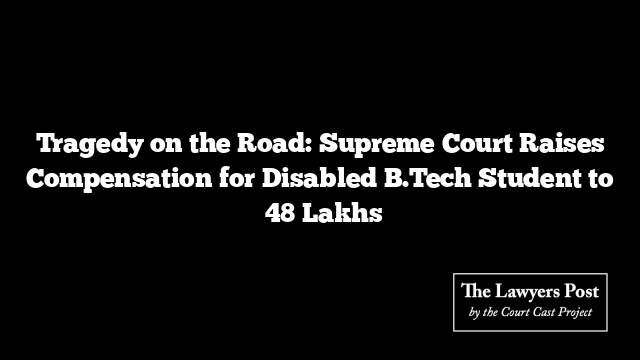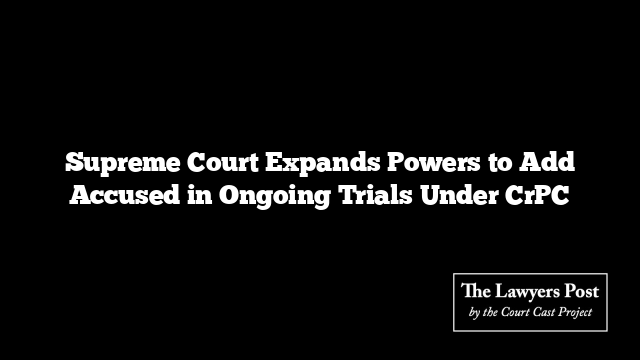In a pivotal decision, the Supreme Court ruled that an accused cannot secure acquittal merely due to flaws in the investigative process. The Court emphasized that defective investigations do not automatically absolve the accused; the remaining evidence must be carefully assessed.
“The law is unequivocal—defective investigation alone does not guarantee acquittal. Courts are obligated to weigh the entirety of evidence, such as eyewitness accounts and medical reports, before arriving at a verdict,” observed the bench comprising Justices Sudhanshu Dhulia and Prasanna B. Varale.
The case arose from violent clashes between the Rashtriya Swayamsevak Sangh (RSS) and the Communist Party of India (Marxist), following a hartal called by RSS. Two individuals lost their lives in the ensuing conflict. While the trial court convicted the accused of multiple offenses, including murder, the High Court later acquitted some while upholding the convictions of others. The convicted individuals brought their appeal before the Supreme Court.
Dismissing claims of discrepancies in witness testimonies, the Court noted only minor variations, declaring them truthful and reliable. Referencing the Birbal Nath v. State of Rajasthan case, the Court reiterated that small inconsistencies in statements do not discredit witnesses.
Applying the interpretative principle of noscitur a sociis, the Court examined the evidence within the broader context of the events. Additionally, the Court rejected reliance on the doctrine of falsus in uno, falsus in omnibus (false in one thing, false in everything), emphasizing that Indian criminal law does not discard entire testimony due to minor contradictions. Instead, the judiciary must “separate the grain from the chaff.”
The bench further underscored that even if the investigation lacked discipline or professionalism, such lapses do not inherently benefit the accused. Drawing on Paras Yadav & Ors. v. State of Bihar, the Court affirmed that prosecution evidence should be evaluated independently of investigative shortcomings.
Concluding its analysis, the Court dismissed the appeal, affirming the High Court’s judgment. It found no inconsistency in eyewitness accounts and deemed the evidence credible, irrespective of the procedural lapses during the investigation.
This ruling reinforces the principle that justice hinges on a comprehensive evaluation of evidence, not merely the quality of the investigation.





